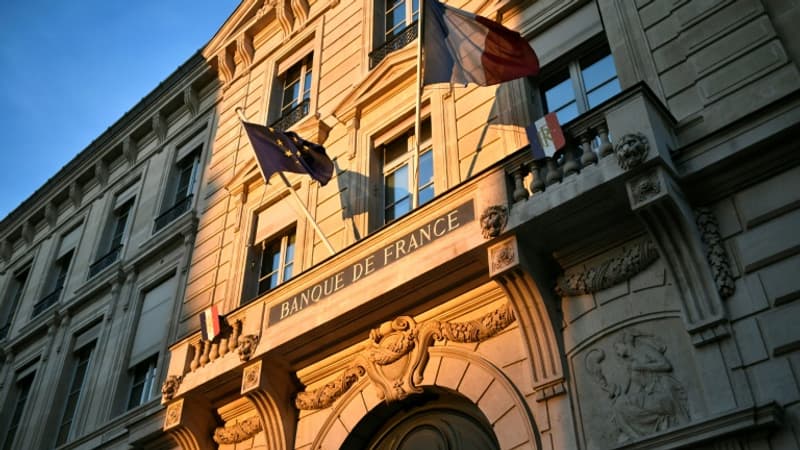Following the announcements from the European Central Bank, the Banque de France presented its macroeconomic projections for the next three years based on identical assumptions. At the beginning of the school year, the French banking institution had defined a scenario of the three Rs: resilience, slowdown and recovery.
“We confirm this today with greater resilience than expected at the end of 2022, indicated Olivier Garnier, General Manager of Statistics, Studies and International at the BdF. We also have confirmation of our slowdown with a small adjustment in the recovery that is a little more scattered. than before”.
Specifically, GDP growth should reach 2.6% this year, then decline to 0.3% in 2023 before returning to 1.2% the following year and finally 1.8% in 2025. Quantities and prices of gas supply: therefore, we maintain a range between –0.3% and +0.8% for this growth forecast in 2023”, indicates the Bank of France.
An inflation spike in the first half of 2023
When it comes to inflation, the Banque de France is cautious. The harmonized consumer price index
it should remain quite high in 2023, at 6% before falling in 2024 (2.5%) and finally return to the target desired by central bankers in 2025 at 2.1%. “The inflation peak should occur during the first half of 2023 but it will depend on the evolution of energy and food prices,” insists Olivier Garnier before explaining the difference with the long period of inflation experienced by France in the 1970s. :
In detail, the Banque de France foresees a continued upward trend in food prices next year, while energy prices will fall. Inflation will also be further fueled by higher prices for services due to wage increases granted by companies. The Banque de France also forecasts a slight drop in purchasing power in 2022 followed by a leveling off next year before a further increase in both 2024 and 2025.
“Until now, the acceleration of wages has not completely followed that of prices, but there have been many jobs with lower productivity”, emphasizes Olivier Garnier. Although productivity per capita should remain stagnant next year, job creation will continue to progress. However, the unemployment rate could rise to 8.3% by mid-2024, that is, one point more than the historically low level registered today by France (7.3% in 2022).
The State continues to the rescue, but a backlash is expected
Olivier Garnier points out that “despite a major shock, households and companies will end this period, in 2025, with greater purchasing power and good margins”. All thanks to an unusual level of public spending.
The public deficit should remain around 5% in both 2022 and 2023 and fall again to around 4.5%, while the debt ratio, which is expected to fall with the withdrawal of the exceptional measures in the context of the pandemic, remains at a high level (112%). The French central bank evokes “a point of vigilance”: “Despite the end of the general support measures of the tariff shield type, the public spending ratio, at 56% of GDP in 2025, could still be two points above its pre-Covid level”, indicates the Bank of France.
However, Olivier Garnier tempers these forecasts by emphasizing that the evolution of the situation in China constitutes a major source of uncertainty. “If there are lockdowns again, there may be tensions in supplies, but if China starts up again, there could also be a sharp increase in Chinese demand for energy and therefore an increase in prices.”
The Banque de France uses Eurostat’s method for evaluating inflation, namely the Harmonized Index of Consumer Prices (HICP) and not that of INSEE. In November, according to this method that allows comparison between countries, inflation in France did not reach 6.2% annual but 7.1%.Timoteo Talbi
Source: BFM TV


